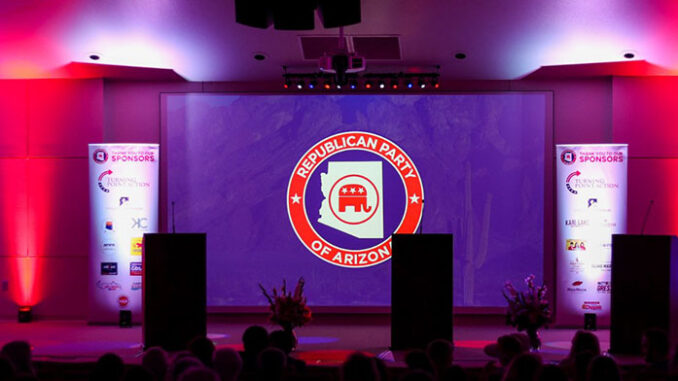
The Arizona Supreme Court handed the Arizona Republican Party (AZGOP) a victory this week, when it reversed an award of sanctions in a case involving the mandatory hand count audit of the 2020 election.
The AZGOP filed that lawsuit against Maricopa County Recorder Stephen Richer, the Maricopa County Board of Supervisors, Secretary of State Adrian Fontes, and the Arizona Democratic Party.
“This case arises from a lawsuit challenging the manner in which Maricopa County election officials conducted a mandatory hand count of ballots following the 2020 general election. We consider whether the trial court and the court of appeals erred in awarding attorney fees against the plaintiff, Arizona Republican Party (the “ARP”), and its attorneys, John D. Wilenchik, Lee Miller, and Wilenchik & Bartness, P.C. The court awarded fees under A.R.S. § 12-349(A)(1) and (F), which provides that courts “shall assess reasonable attorney fees” if an attorney or a party “[b]rings or defends a claim” that “is groundless and is not made in good faith.” We hold that the attorney fees award was improper because Petitioners’ claim was not groundless, thus obviating any need to determine whether the claim was made in the absence of good faith,” wrote Arizona Supreme Court Justice John R. Lopez, who authored the Court’s opinion.
Lopez reversed Maricopa County Superior Court John Hannah’s opinion and vacated the Arizona Court of Appeals’ opinion that the AZGOP should pay attorney’s fees.
Lopez further found that “sanctions present a real and present danger to the rule of law.”
Lopez concluded:
“Petitioners were sanctioned under § 12-349 for pursuing election-related claims the trial court and court of appeals erroneously characterized as “groundless.” Far from filing and maintaining a factually unsupported election challenge, Petitioners sought a declaratory judgment based on the plain language of § 16-602(B)(1) and requested mandamus relief conditioned on a favorable resolution of their action for declaratory relief. Under our jurisprudence, for the reasons discussed, Petitioners’ claim was not groundless and arguably was made in good faith. Of note, the trial court emphasized in its ruling that Petitioners’ gravest transgression and “direct evidence of bad faith” was “[u]ndercutting the election’s legitimacy by raising ‘questions,’” which it characterized as “a threat to the rule of law posing as an expression of concern.” But “raising questions” by petitioning our courts to clarify the meaning and application of our laws and noting the potential consequences of the failure to do so—particularly in the context of our elections—is never a threat to the rule of law, even if the claims are charitably characterized as “long shots.” Of course, parties and attorneys in election cases are not immune from sanction under § 12-349, see, e.g., Kentch v. Jantzen, No. CV-23-0205-SA, at 3 (Ariz. Aug. 23, 2023) (dec. order), but neither are they more susceptible to its terms. During times of social and political contention and strife, we must be mindful that our courts provide a means of resolving such conflicts when issues are legitimately presented. By sanctioning parties and their lawyers for bringing debatable, long-shot complaints, courts risk chilling legal advocacy and citizens raising “questions” under the guise of defending the rule of law. Even if done inadvertently and with the best of intentions, such sanctions present a real and present danger to the rule of law.”
Lopez blasted Judge Hannah for his “rigid delineation between the motives underlying election litigation—“political” reasons, which invite sanction under § 12-349, and “legal or factual” justifications, which are permissible.”
“Invariably, political motives are inextricably intertwined with the legal or factual considerations in pursuing election cases,” wrote Lopez. “… Our courts should be cautious that, in their zeal to ensure that election challenges are properly grounded in fact and law under the guise of defending an “election’s legitimacy,” they do not inadvertently inflict real damage to our republic by slamming the courthouse door on citizens and their counsel legitimately seeking to vindicate rights, which is also important to maintaining public confidence in elections.”

Bravo!! The Arizona Supreme Court just nullified a weapon used by the left. The lower court’s finding the case “groundless” was specious, at best. It is one of the left’s intimidation tactics to make sure the cost of defying it is extreme. If only the state bar would take a lesson here!
So what? His did nothing but give people money from what I can see. It does nothing to address the irregularities that occurred in Maricopa county in 2029 or 2022